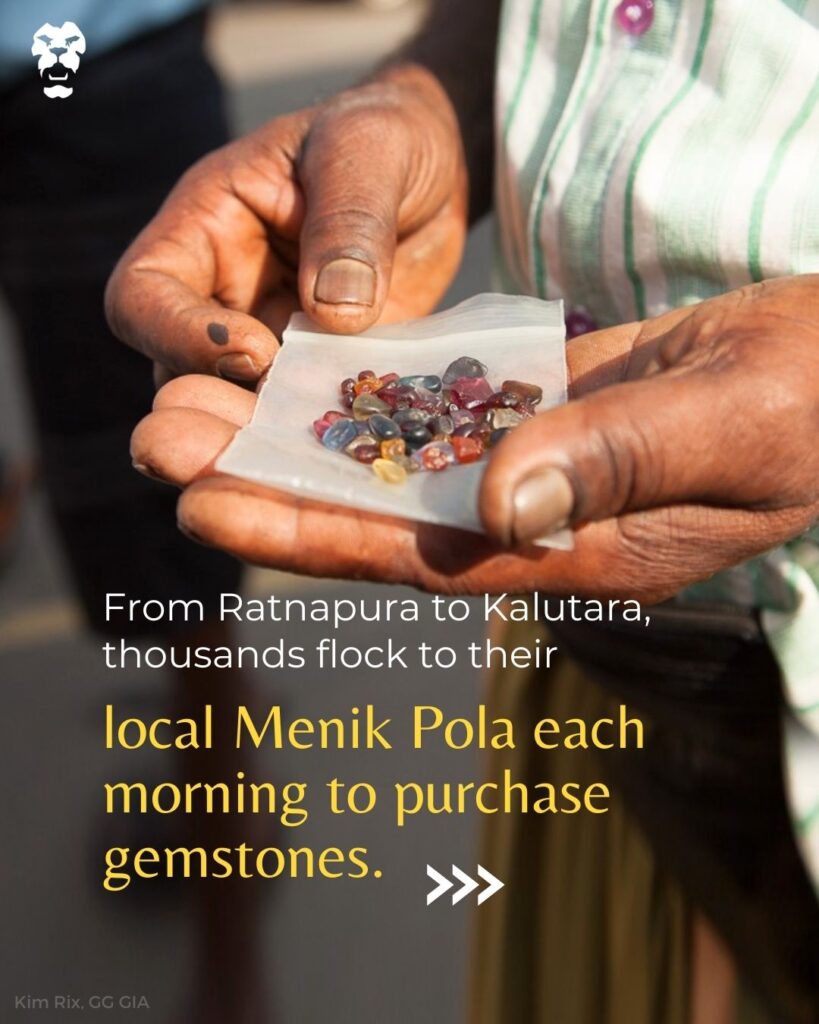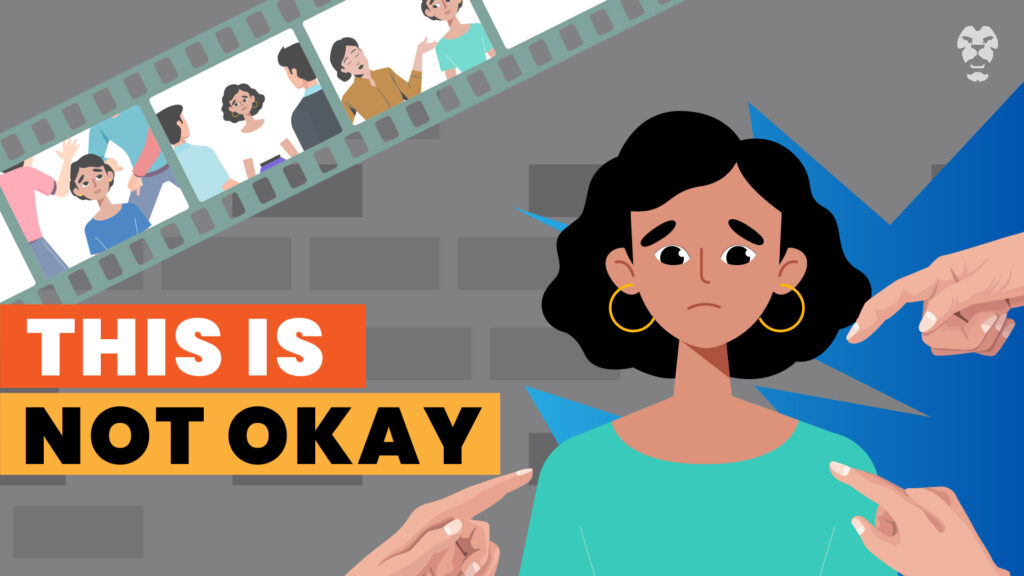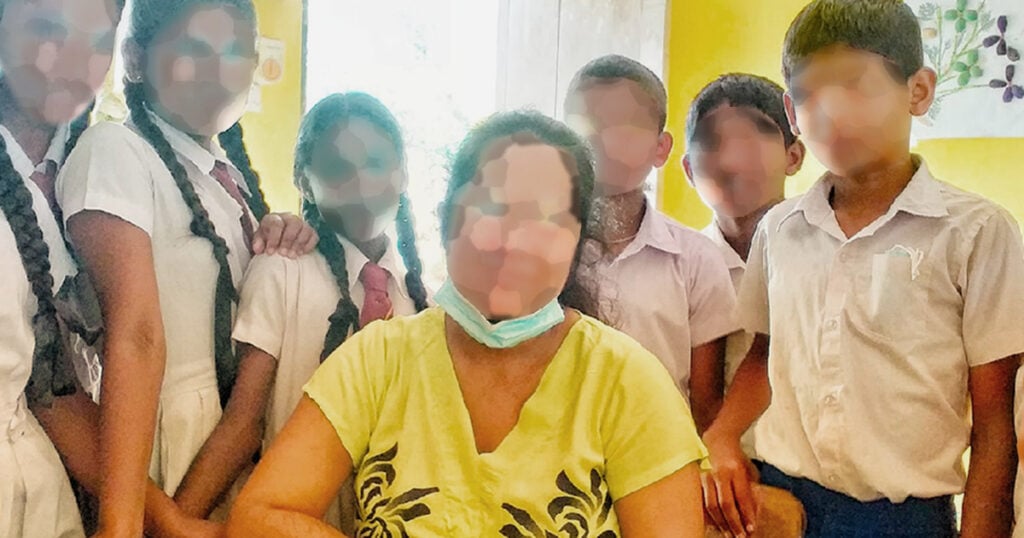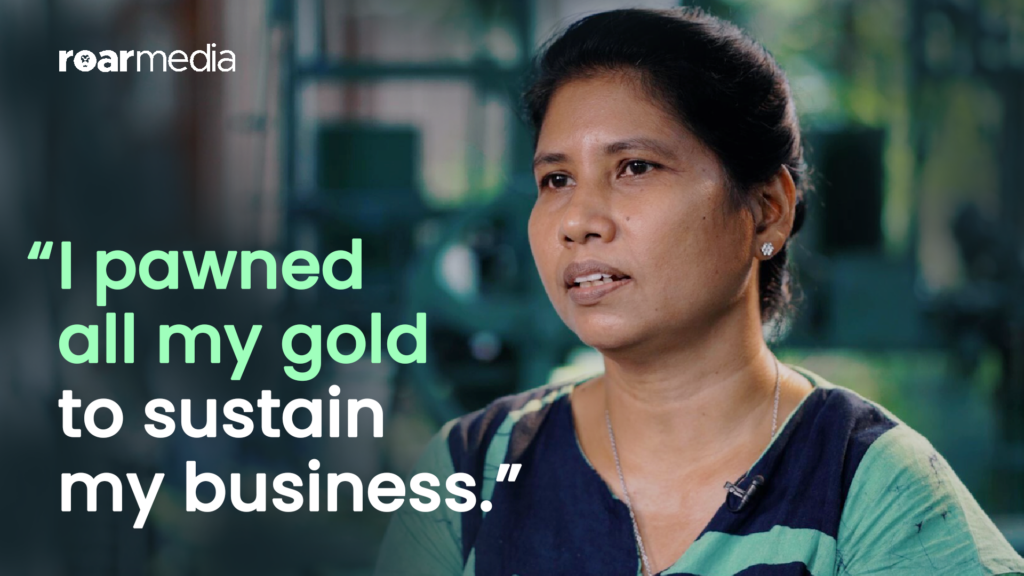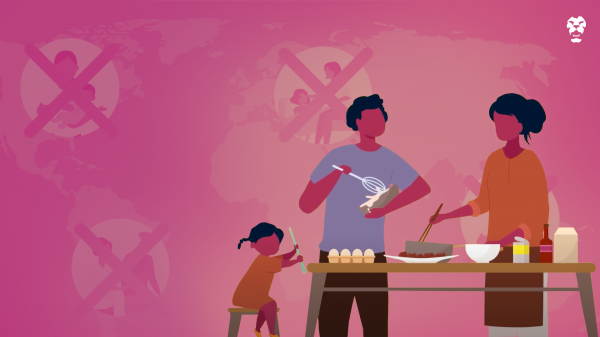
The travelling circus arrived in stages, one show at a time, to the public playground in Nedimala, Dehiwala, two days prior to the main event. First came the merry-go-round, with its bedazzled pink-and-white horses. Then the numerous food stalls for the usual fair fare; fried potato, cassava chips, popcorn and candyfloss.
Previously a much-anticipated, regular event, the colourful carnival was back after a long break of more than two years.
But this year’s circus was lacklustre. The musical show that was planned was cancelled last minute as a result of a COVID-scare among performers, and many stall owners felt that after a break of two years, it seemed that people just did not care about the carnival anymore.
In the three days, we spent speaking to the people who were the lifeblood of the carnival — the stall owners and ride operators — we estimated that only about a hundred visitors showed up. And they were mostly there to see one act: the daredevil motorcyclists — or the stuntmen on the ‘Well of Death’.
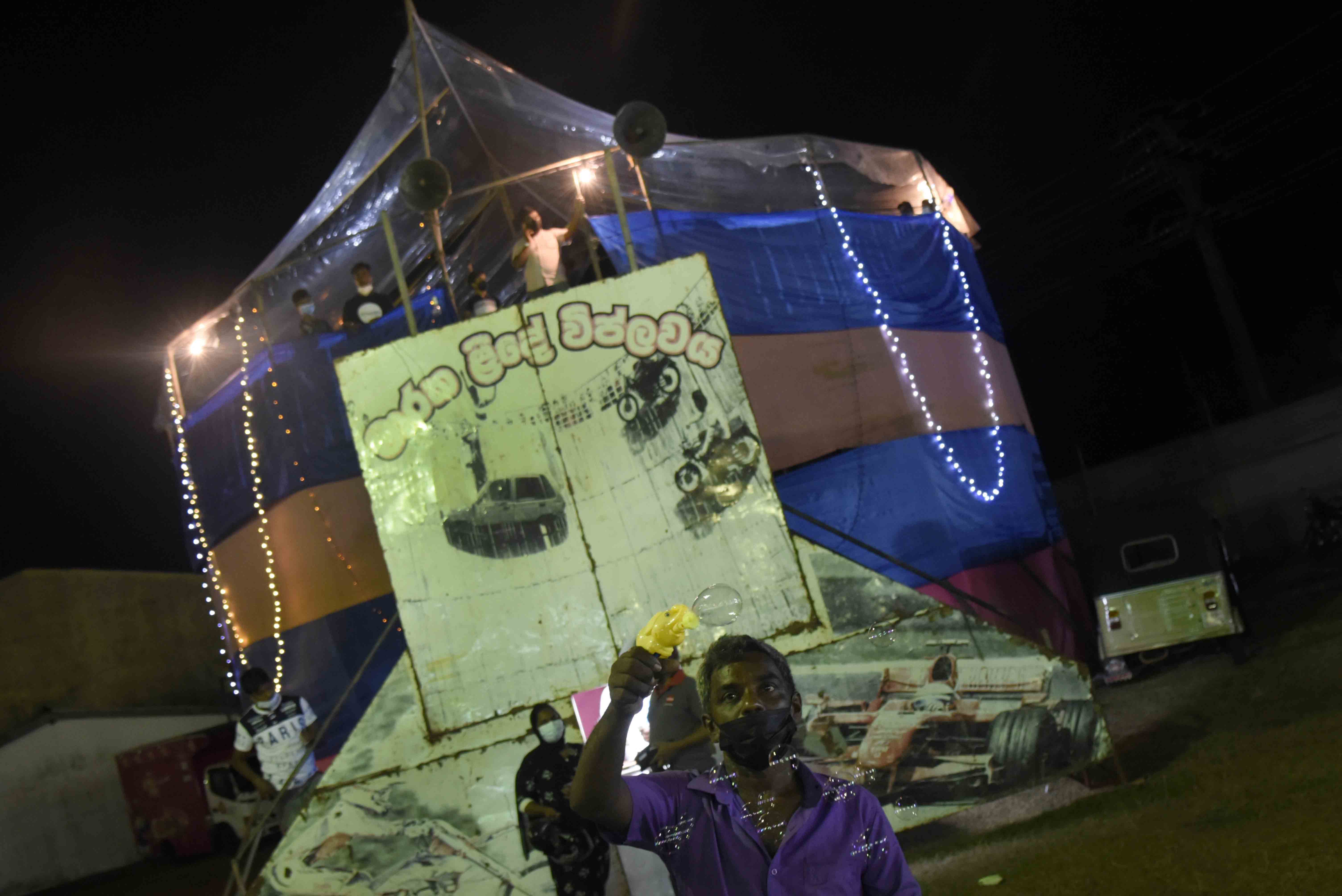
The daredevil cyclists ride in the motordrome; a bulky and hollow tower made out of wooden planks covered in a tent made of cloth and plastic to provide the stuntmen and spectators shelter. Here, the group of four performers and organisers spend their mornings before evening performances. And at night, after the event, this is also where they sleep.
Within the hollow space of the tower — or the well — is where the ‘performance’ takes place. Here the motorcyclists perform death-defying stunts, where a motorcycle — or even small car — is driven on the walls of the tower, in a seemingly gravity-defying act of daredevilry.
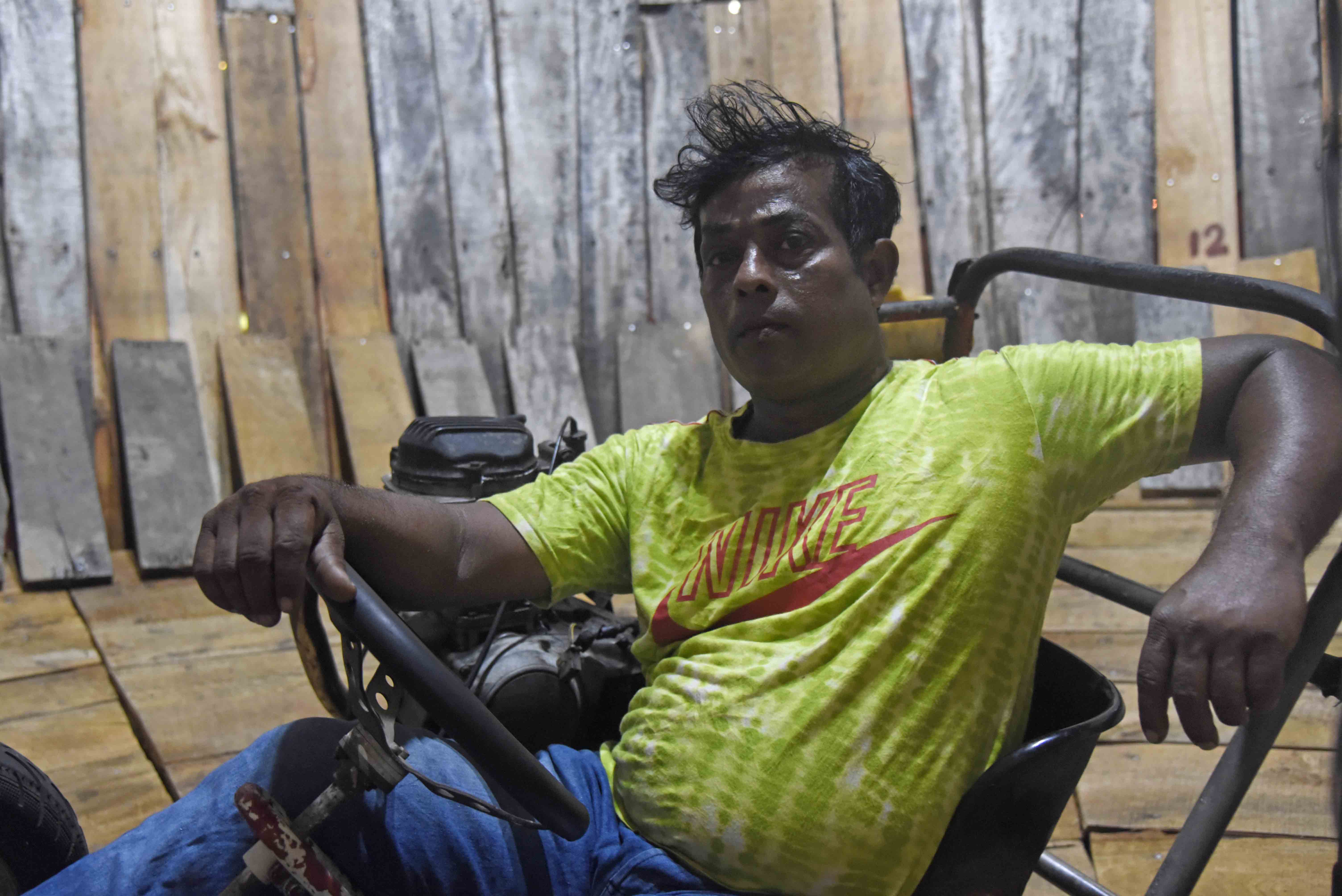
Stationed at a ticket counter at the bottom of the tower is Alwis, a stuntman in his late sixties, on standby in case one of the others get injured or sick — because the show must always go on. Recruited by Chaminda, the default leader of the group, some 15 years ago, Alwis is tall and lean and sports a well-maintained moustache and a silver chain around his neck. He is largely silent, but somehow still emits the bravado of an old-time movie gangster, the perfect character for ticket sales and crowd control. Tickets are priced at LKR 200 for adults and LKR 100 for children.
Chaminda, 38, has been in the business of daredevilry for nearly 20 years. Along with
his crew, he has travelled to almost all parts of the island, is constantly on the move, and spends little time at his home with his family in Galle.
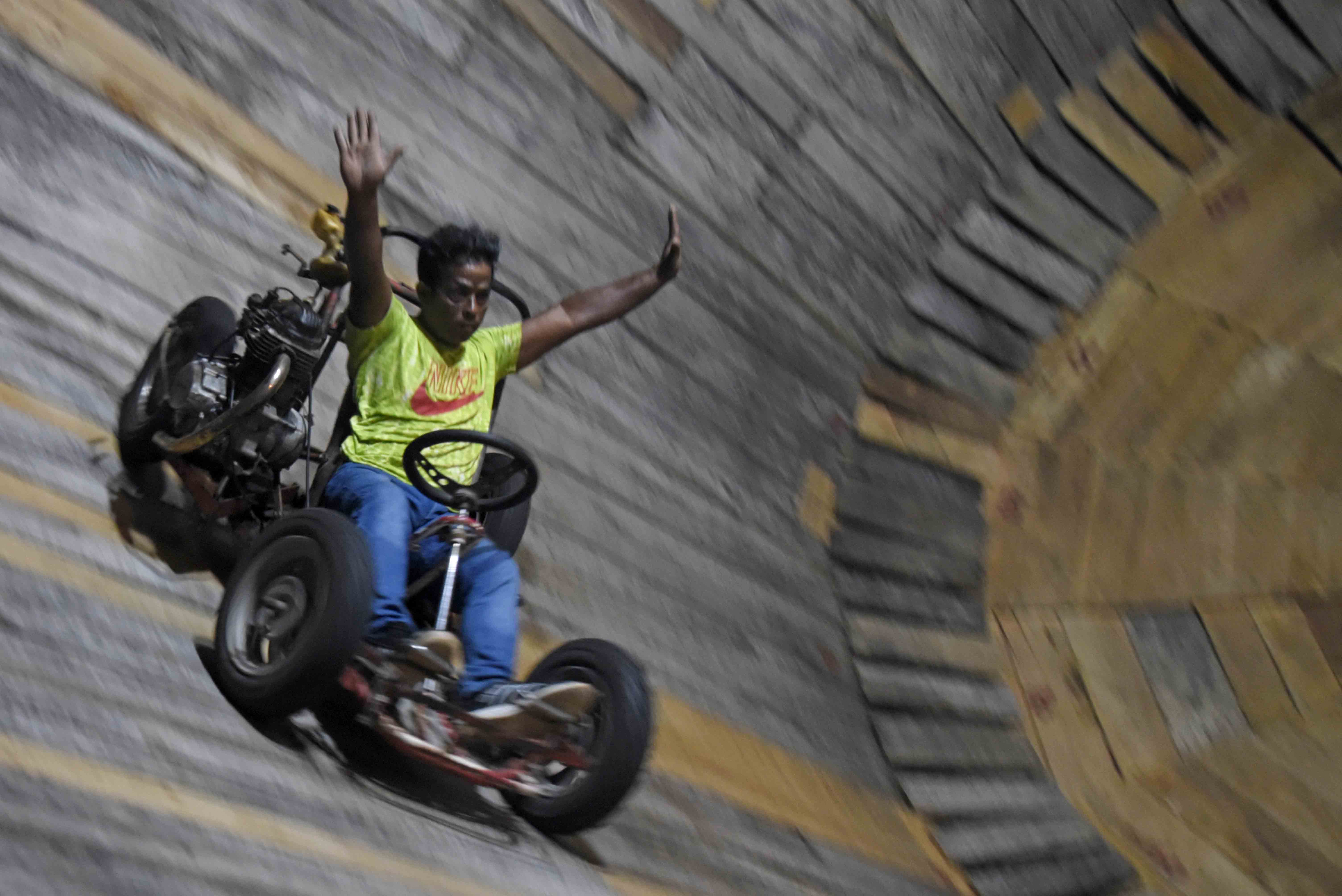
“My elder brother was the one who taught me how to drive on the wall,” Chaminda said. “The two of us used to go to every carnival that came to our village, just to watch this performance. In those days, we managed to learn a lot of things; the people who did it taught us. In return, they got our help in pitching their tents or building this well.”
But this is not something that they see happening anymore, he explained. Now, parents don’t want their children to ‘hang around these men’ and worry that helping them with the stunts could be dangerous, Chaminda said. It’s not something that he wants for his children, either.
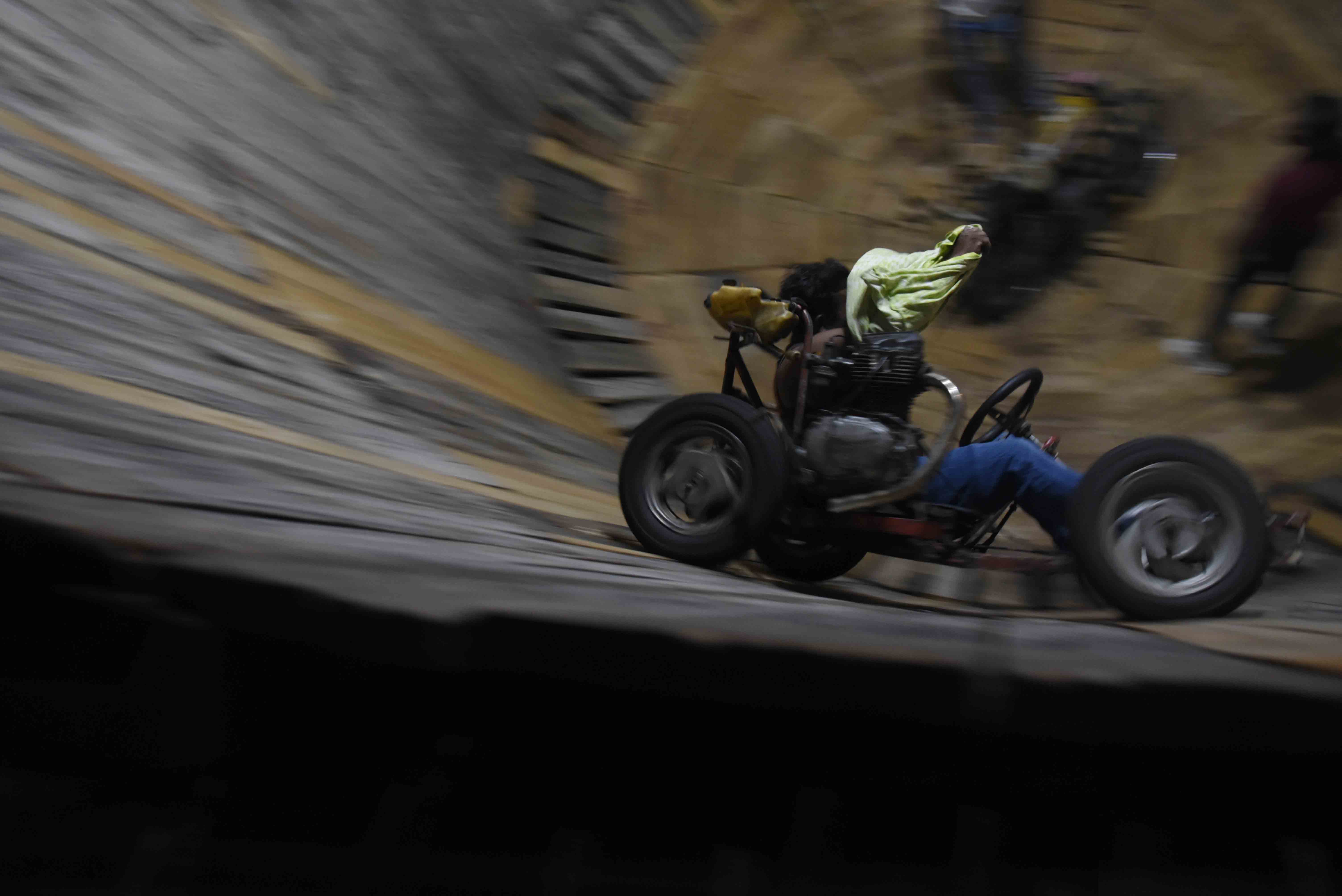
When the pandemic struck and the government imposed lockdowns and travel restrictions to mitigate the spread of COVID-19, the circus and carnival business suffered massive losses. The stuntmen had to find alternative sources of income, and their passion for entertainment was put on hold.
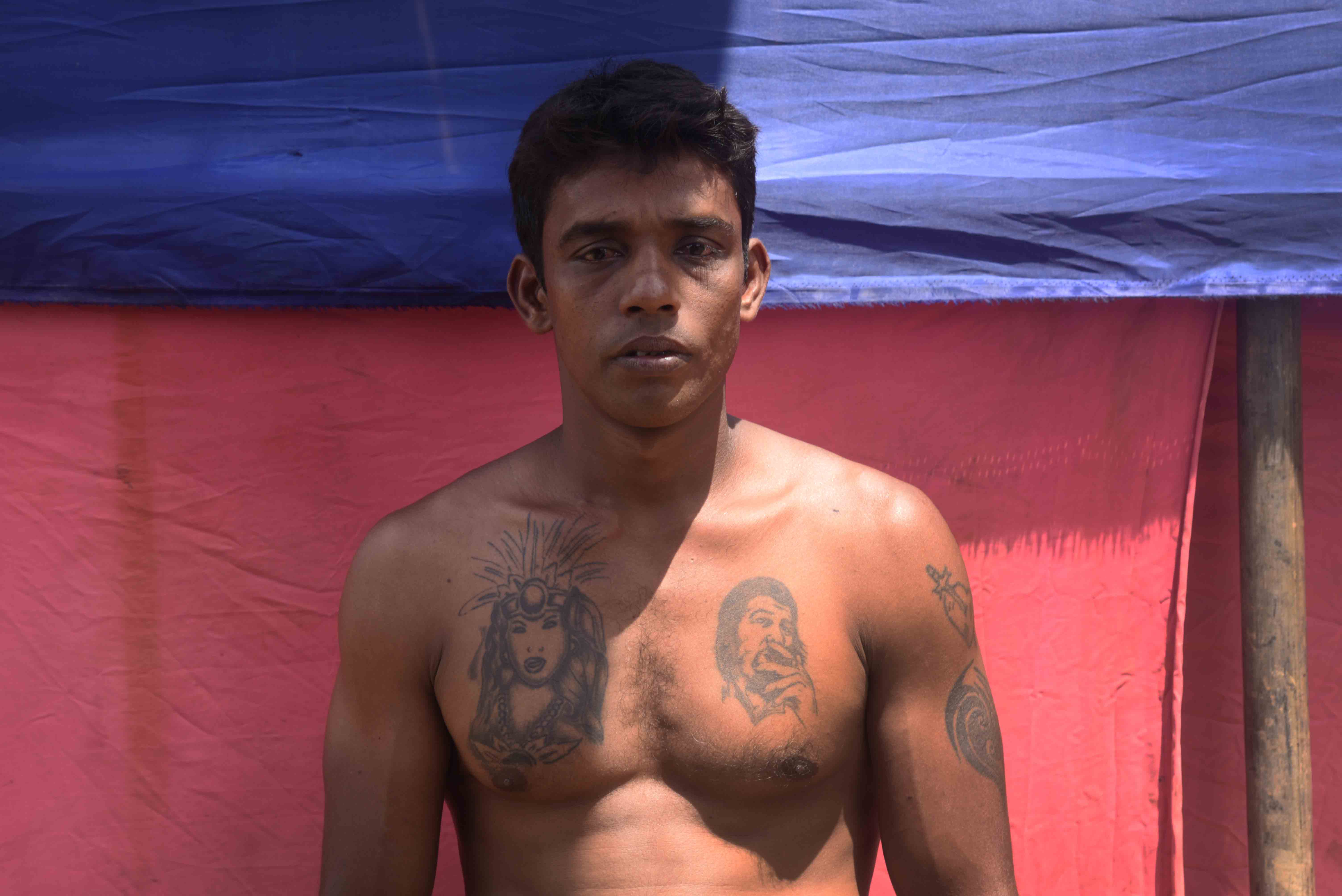
Chanaka, 35, the youngest of Chaminda’s crew, joined the group some 13 years ago and shares a similar story with Chaminda. He, too, learned the skills when he was young, by spending a lot of time with stuntmen who travelled with circuses.
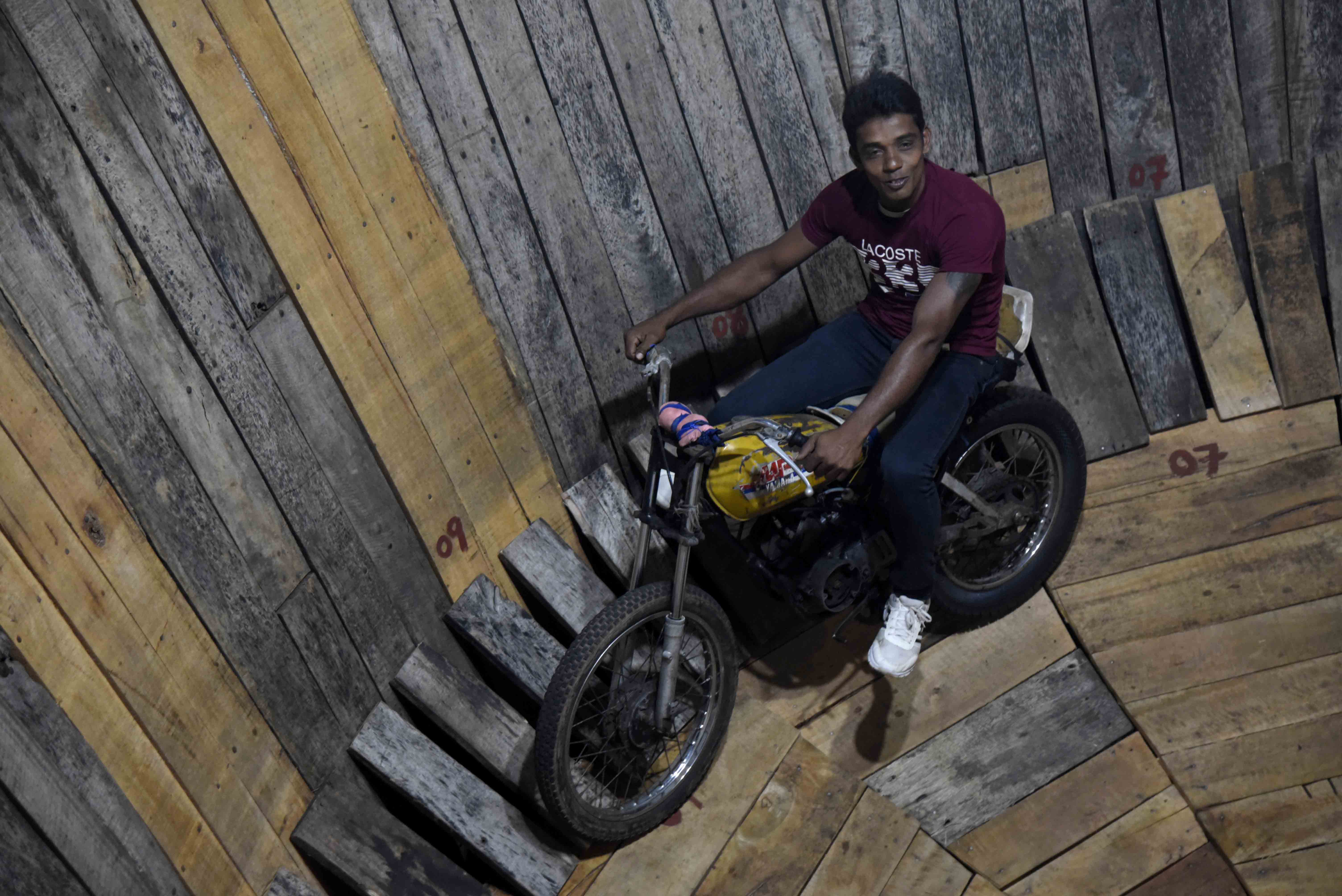
The science is actually quite simple; the speed of the vehicle allows it to continue spinning around the curved wall of the well in a gravity-defying spectacle, that is a sight to behold — although it may be an overload of sensations for someone not used to seeing it done before.
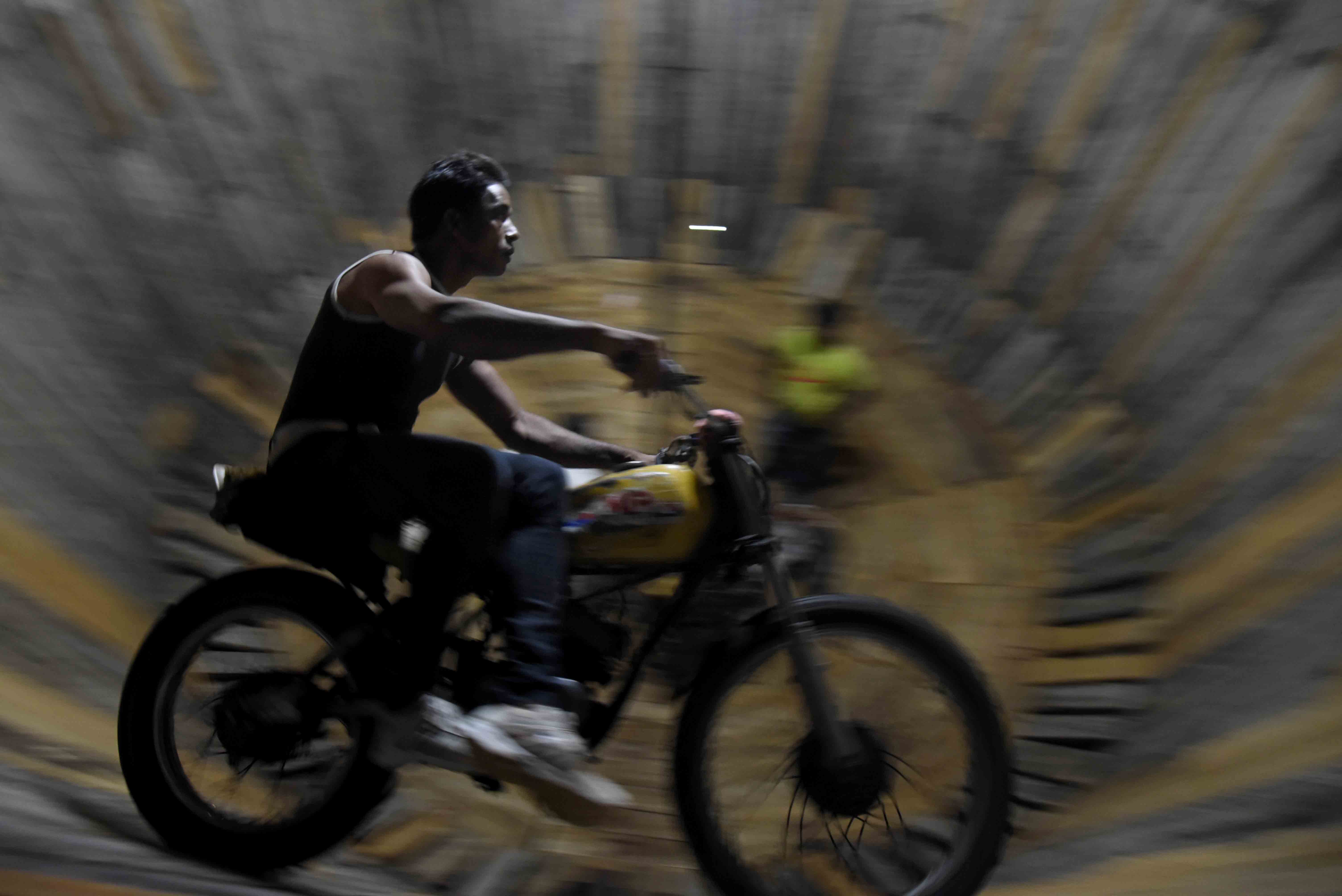
Almost everything vibrates when the vehicles are inside the well; the timber trembles and the noise of the engines reverberate within the tower. Most spectators hold on to the metal railings around the top of the tower as if holding on to their dear lives while watching in a morbid curiosity the magic of the death well.
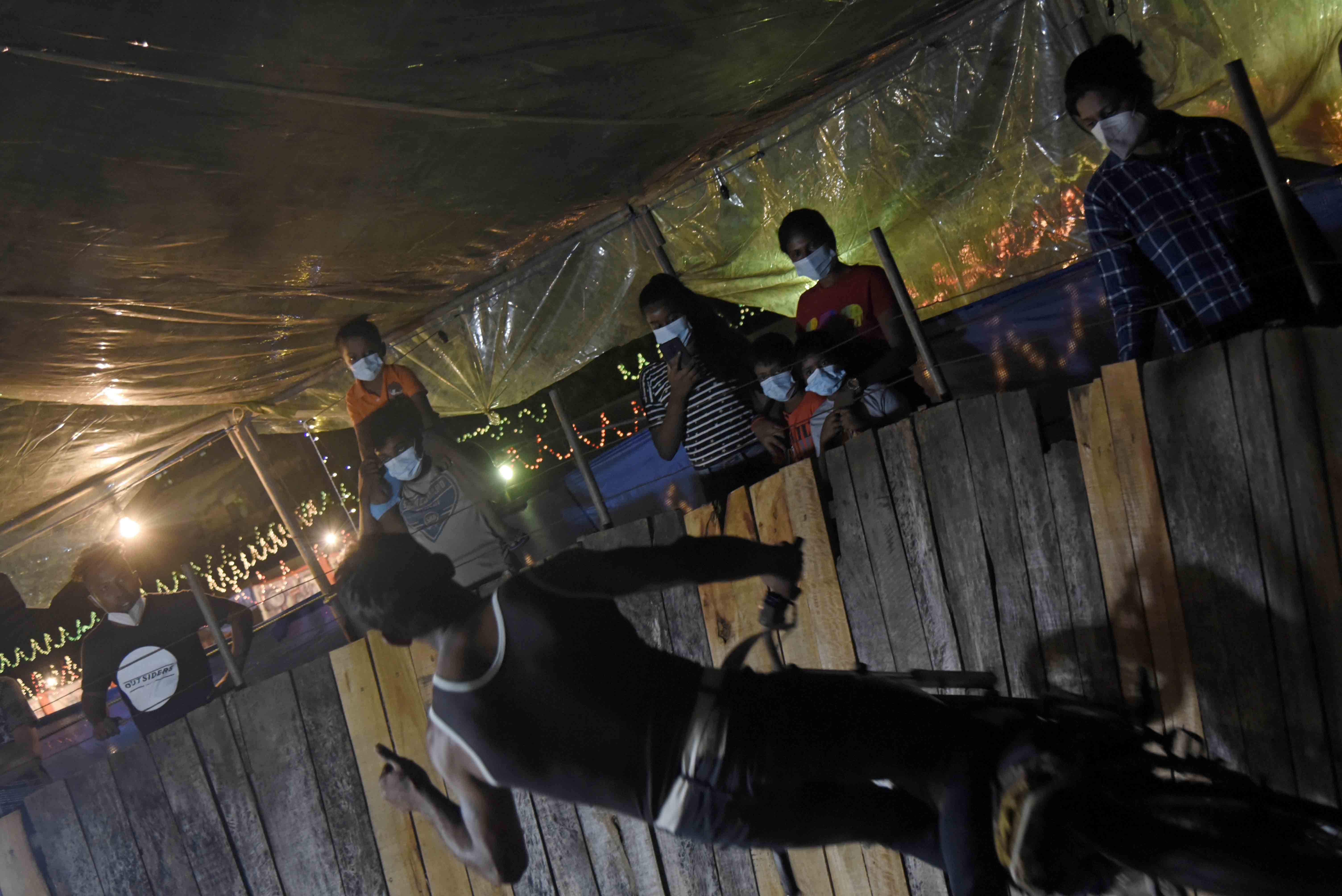
“You cannot drive when it rains,” Chaminda said. “Even though there is a cover on top of the well, the water tends to drip down onto the planks and it becomes slippery. That’s dangerous, a disaster waiting to happen. Besides, people don’t show up when it rains,” he said. It had rained on the first night of the show this year in Nedimala.
It looks as though the circus is a dying business in this post-COVID world. Before the stuntmen earned enough, they claimed, to send home money regularly. It’s a different case now entirely.
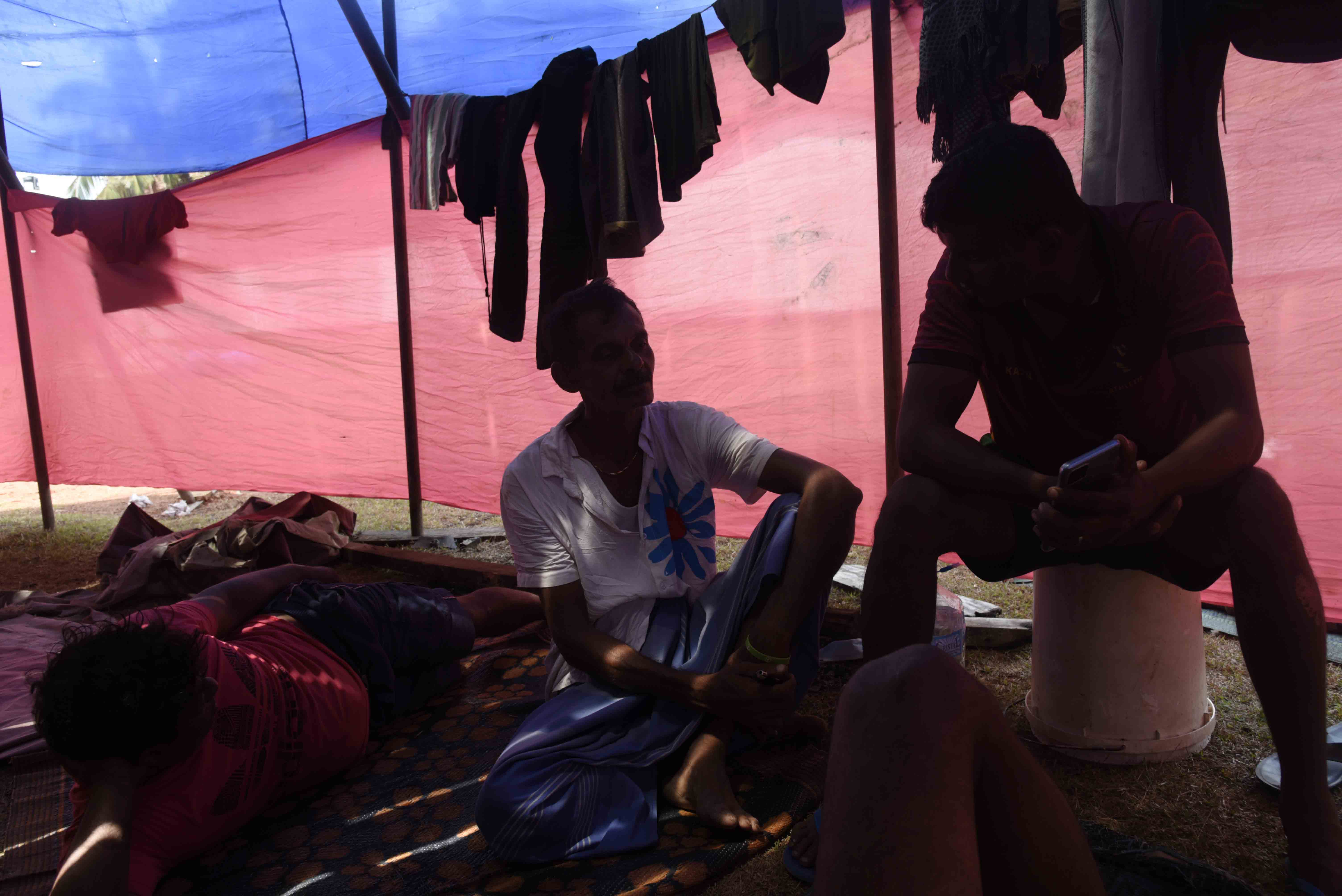
“This work is dangerous. But we do it anyway,” Chanaka said.
The life of a daredevil cannot be insured for safety. Insurance companies do not provide their services to them, he said, on the basis that they willingly put their life at risk. These daredevils are aware of the risk involved — very much so, as made evident by the meticulous work they put into preparation before every performance. There is also a slight addiction to the thrill of defying gravity, to the adrenaline rush that surges through their veins as the vehicle takes over edges close to the top of the tower and the audience erupts in a sea of applause at the end. And so, despite the odds and the difficulties, none of them plan to give up the trade any time soon.

